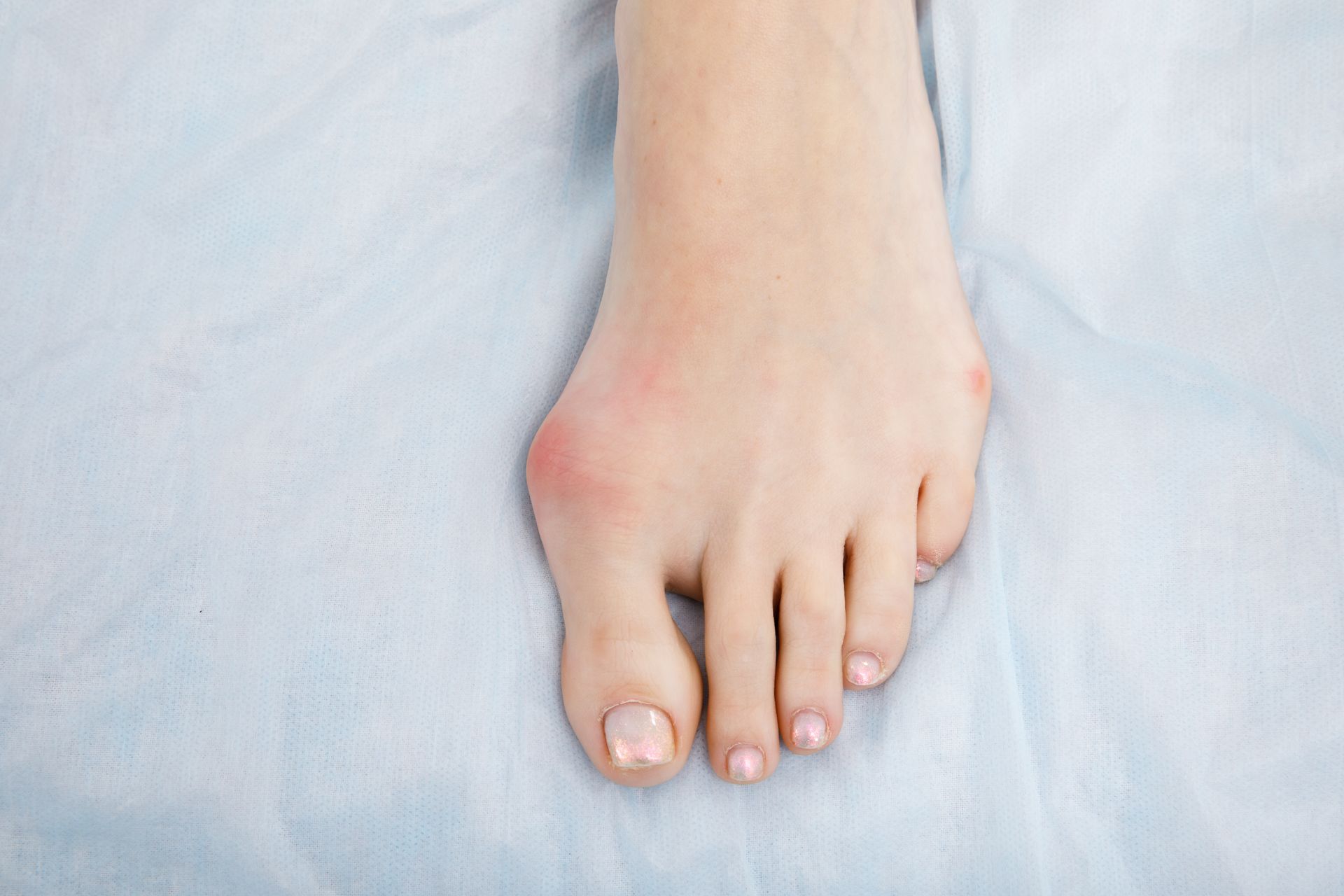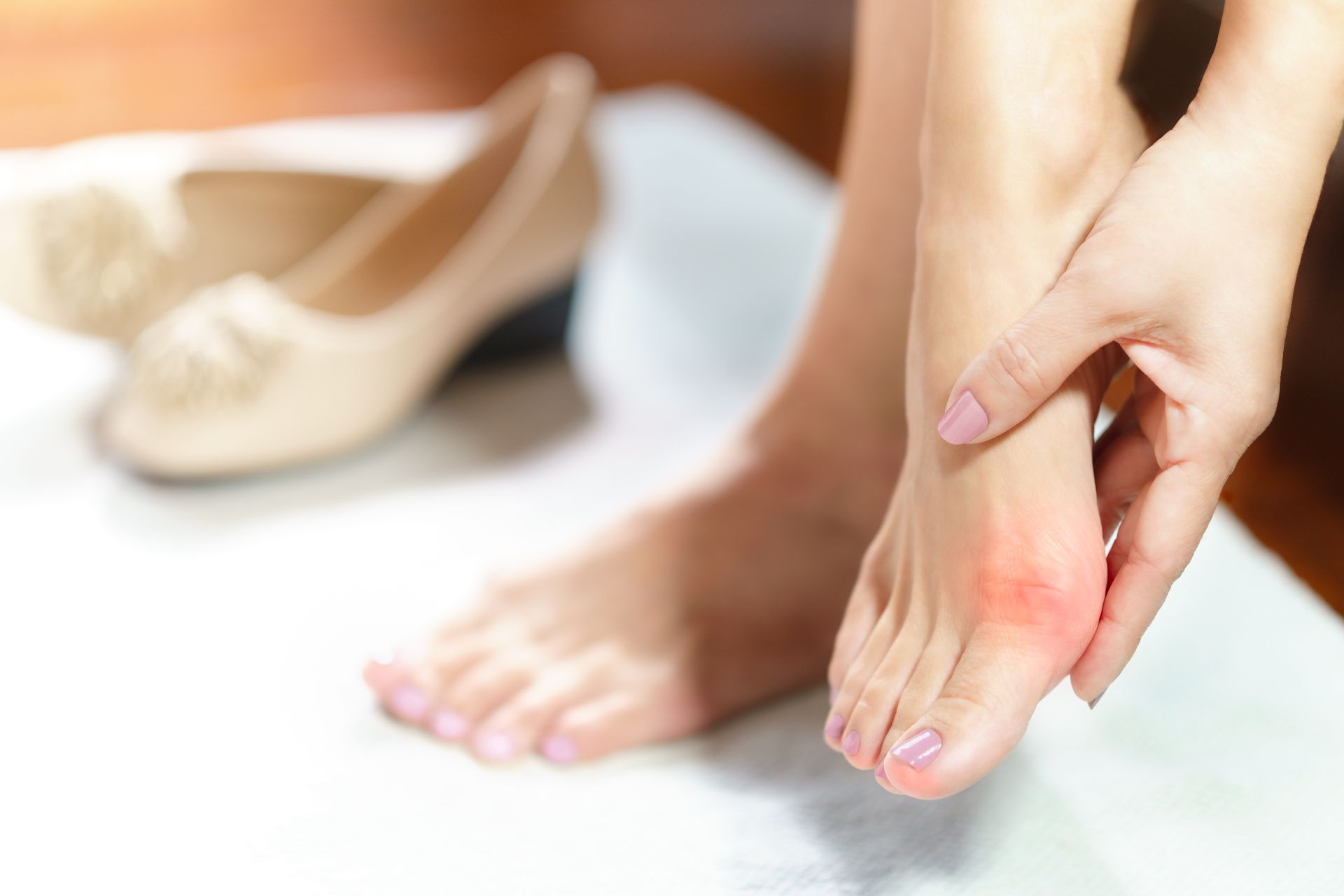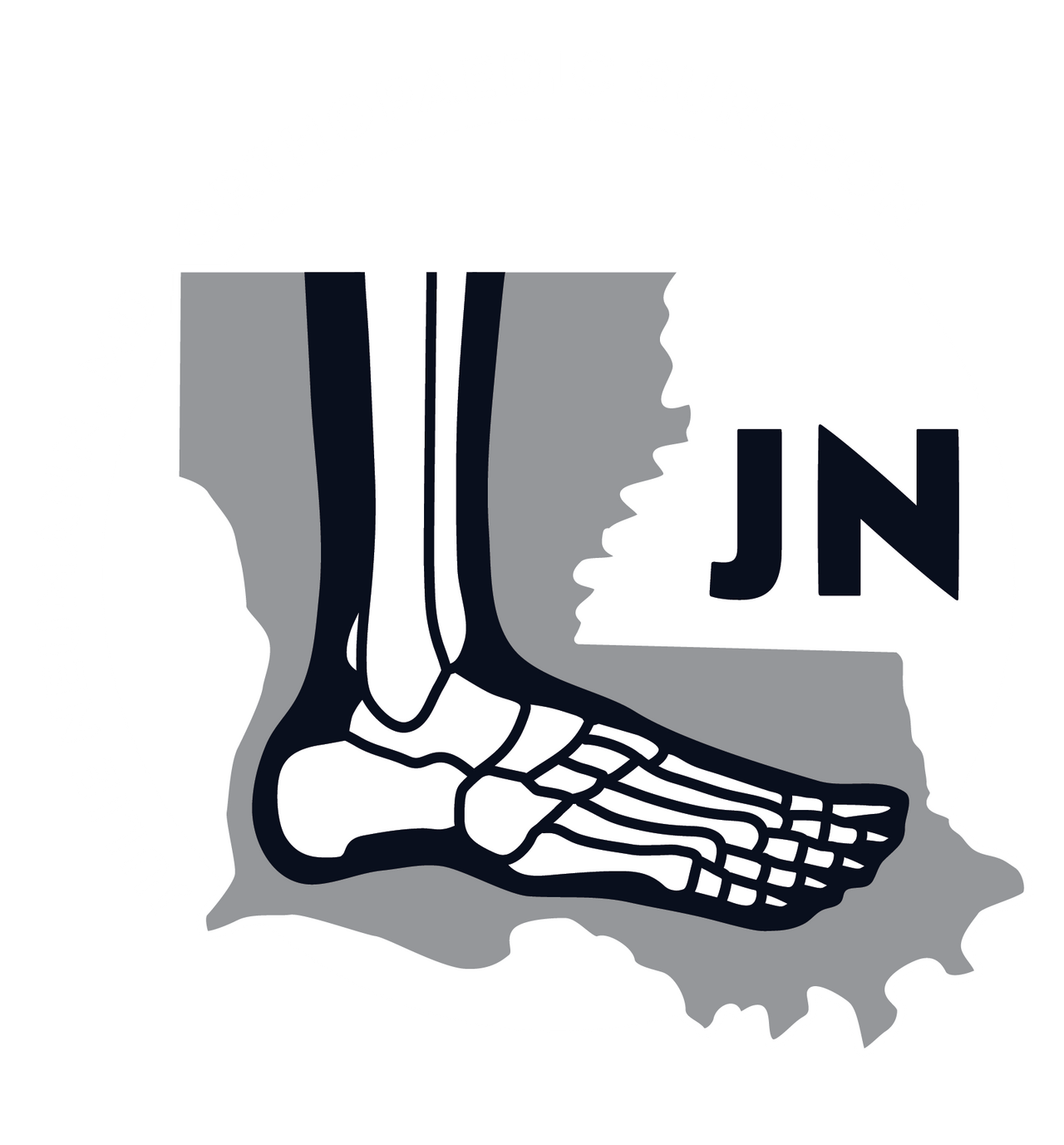Bunions affect over 3 million Americans each year and can cause significant discomfort and frustration. This bony bump at the base of the big toe can cause pain while walking, make it difficult to wear shoes, and limit daily activities. As an experienced orthopedic surgeon specializing in foot and ankle care, Dr. Julie Neumann understands the impact bunions have on one's lifestyle.
If non-surgical treatments no longer provide relief, surgery may be the next step. But with several types of bunion surgery available, how do you know which procedure is right for you? This guide will help you understand your options and what to expect.
What Is a Bunion and What Causes It?
A bunion, medically known as hallux valgus, forms when the bones in the forefoot shift out of alignment, causing the big toe to angle toward the second toe. This misalignment creates a visible bump on the inside of the foot.
Several factors can contribute to bunion development, including:
- Genetics: Inherited foot structure plays a significant role
- Footwear: High heels or narrow shoes can worsen alignment
- Foot mechanics: Flat feet, abnormal arches, or joint instability
- Injury or overuse: Injury or repetitive stress can accelerate deformity
Understanding the cause of your bunion is important in deciding the best treatment plan.
When Is Bunion Surgery Necessary?
Not all bunions require surgery. Many patients find relief through non-surgical options, such as adjusting footwear, using orthotics, or receiving anti-inflammatory treatments.
Surgery is considered when:
- Pain limits daily activities or shoe wear
- The bunion worsens despite conservative care
- The deformity causes significant foot dysfunction
- Non-surgical treatments fail to control symptoms
Dr. Neumann evaluates each case individually to recommend the most effective treatment tailored to your foot structure and lifestyle.
Types of Bunion Surgery Performed by Dr. Neumann
Dr. Neumann offers a range of surgical procedures, choosing the best option based on the severity and specifics of your bunion:
- Lapiplasty Procedure: A cutting-edge technique that addresses joint instability and corrects the bunion in three dimensions. This procedure reduces the risk of recurrence and allows for a more natural foot alignment.
- Chevron (Austin) Osteotomy: Ideal for mild to moderate bunions, this surgery realigns the bone through a V-shaped cut and secures it with screws.
- Scarf Osteotomy: This method, used for larger deformities, involves a Z-shaped cut along the metatarsal bone to shift and stabilize it.
- Minimally Invasive Bunion Surgery: When appropriate, Dr. Neumann employs minimally invasive techniques to minimize tissue disruption, reduce scarring, and promote a faster recovery.
Each surgery aims to relieve pain, restore foot function, and improve appearance, with precision and care focused on long-term success.
What to Expect During Bunion Surgery Recovery
Recovery times vary depending on the procedure and individual healing, but generally follow this pattern:
- Weeks 1–4: Rest, foot elevation, and limited or no weight-bearing
- Weeks 4–6: Transition to a walking boot or surgical shoe as recommended
- Weeks 6–8+: Gradual return to regular footwear and activities
- 3–6 months: Continued improvement in swelling, stiffness, and mobility
Dr. Neumann creates personalized recovery plans and closely monitors progress to ensure optimal healing and return to your favorite activities.
Risks and Complications of Bunion Surgery
Like any surgery, bunion correction carries some risks, including:
- Infection
- Nerve irritation or numbness
- Toe stiffness
- Recurrence/overcorrection of the bunion
- Prominent hardware
- Delayed bone healing or nonunion
Dr. Neumann uses advanced surgical techniques and strict safety protocols to minimize these risks and promote successful outcomes.
Why Choose Dr. Julie Neumann for Your Bunion Treatment
Dr. Neumann is a board-certified orthopedic surgeon, fellowship-trained in foot and ankle surgery, as well as sports medicine. Her personal experience as a former collegiate athlete gives her unique insight into the importance of mobility and pain-free movement.
Patients choose Dr. Neumann for her:
- Expertise in both traditional and minimally invasive bunion surgeries
- Personalized treatment plans tailored to individual needs
- Commitment to helping patients return to active lifestyles
- Compassionate, patient-focused care throughout the treatment journey
If bunion pain is limiting your life, Dr. Julie Neumann offers expert care to get you back on your feet. Ready to find relief? Schedule a consultation with Dr. Julie Neumann today and take the first step toward healthier, pain-free feet.




